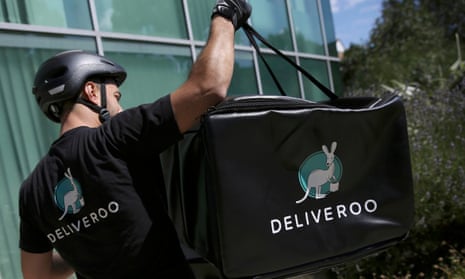Who doesn’t want to be their own boss? Since the dawn of industrial capitalism, gaining independence over our livelihoods has been the hope for many workers. Instead of being told what to do by employers, afraid of what will happen if we say no, it could be us calling the shots, deciding when and how to get things done. Making a living would be so much easier and more pleasant…
If that was the dream, welcome to the nightmare.
Self-employment is rising in many economies. In the UK it has grown by a staggering 45% since 2002. But here’s the catch. The chances of becoming the next uber-wealthy Richard Branson are fairly slim. A recent study has found that the average self-employed contractor is now paid less than in 1995.
So how did the dream of becoming our own boss turn into such a bad deal for all the construction workers, IT consultants, nurses and courier drivers who believed that being self-employed would be a path to economic freedom? In short, neoliberalism.
Economists who worked in this tradition, including Milton Friedman and Gary Becker, believed that everyone ought to behave like mini-corporations, individually competing on the open market. Employees were simply capitalists in disguise. Friedman was spellbound by the notion. Perhaps he’d found the ultimate retort to the old Marxist battle cry to seize the means of production. If it turned out that workers were already their own means of production, the tension between labour and capital magically disappears. Just like that.
Of course he was wrong, which didn’t stop the idea catching on in a big way from the 2000s onwards. All of sudden, we were living in “Free Agent Nation”, where footloose super-temps and creative freelancers were transforming old industries into vibrant knowledge economies. And making a fortune in the process. Everyone was potentially an entrepreneur, mothers at home or “mumpreneurs”, and even kids.
Unfortunately, the move to reclassify people as self-employed follows a very simple formula: it helps reduce labour costs and maximise profits for businesses that would rather use contractors than a permanent workforce. This includes Uber, Hermes, universities and many other organisations.
The business logic is rather brutal. If you’re self-employed then all the costs that a normal employer would cover must now be paid by you – including training, uniforms and vehicles, not to mention basic provisions for pensions and sick pay. This is the case even when a contractor works for the firm on a de facto permanent basis.
A Hermes courier in Yorkshire recently described the predicament. He spent two days training with another contractor, which he wasn’t paid for. Once on the payroll, he calculated his income to be about £4 per hour before expenses. And after figuring these expenses into the equation the bleak reality became clear:
The Hermes model offloads all the risk on to the “independent” courier, but the potential reward is absolutely limited. You are responsible for the packages, any problems with the system, your car, paying for your holiday time, covering any sickness. He learned that a local postman had recently had an operation on his hand as a result of an injury at work. He had five weeks off on sick pay. Hermes couriers don’t get any sick pay. The postal workers often help out the couriers because they feel sorry for them. They know the Hermes couriers get a raw deal.
The problem is that successive governments have completely swallowed the “entrepreneurial society” propaganda that is spouted by neoliberal economists. As a result, the laws and regulations that protect the permanent workforce don’t apply here. Not even the minimum wage. Clearly this has been exploited by employers.
When a major budget airline hit the headlines over its hiring of pilots as self-employed contractors, many were surprised that highly trained professionals were being subjected to zero-hours contracts. The trend wasn’t only affecting university students working part-time at a pub, but people who fly jetliners.
Most worrying about the case was the amount of pressure the pilots experienced to work regardless of whether they were ill or fatigued. They wouldn’t be paid otherwise. The pilots protested by circulating a “safety petition” to other workers. Then senior management issued a warning: “any pilot who participates in this so-called safety petition will be guilty of gross misconduct and will be liable for dismissal”.
Perhaps the message cuts to the heart of the self-employment movement. It’s all about power. While some may end up on top, most workers find themselves perilously dependent on an employer, and with few rights or protections, not to mention less pay.
What can be done? Well, the airline pilots had the right idea. The only way to rebalance what is now a very unequal power relationship is to collectivise. Workers at Deliveroo and Uber have arrived at similar conclusions.
The so-called “gig economy” sounds glamorous and fun, like trendy graphic designers working from a laptop in a Shoreditch cafe. Sadly it’s turned out to be something of a bad gig for many struggling to make ends meet. The conflict between workers and capitalism hasn’t disappeared. It might have got even wor
- You can catch up on the discussion we had on this article and others on our Your Opinions thread, which is now closed.









